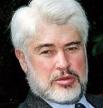The Cato Institute, the libertarian think-tank based in Washington DC, recently published a set of 24 essays refuting the arguments of the French economist Thomas Piketty in his bestselling book Capital in the 21st Century.
The Cato book notes that although Piketty has backpedalled in the face of criticism that greeted his book when it came out in 2014, this is not widely known. The Cato book is entitled Anti-Piketty: Capital for the 21st Century.
Piketty's book, arguing that inequality threatens democracy, came as a godsend to everyone wanting to put up taxes. He proposed a steep increase in tax on the very rich culminating in a top marginal rate of 80%. He also proposed a global wealth tax of up to 5%.
Several essays expose Piketty's dishonest use of data. Although he claimed that he would "let the data speak," he is accused of being a "cherry-picker" who aligns his data with the story he wants to tell, while ignoring contrary evidence. He is also accused of "pulling numbers out of the air". His presentation of historical events is "laced with factual error". Some errors – over dates on which minimum wages in the US were adjusted – "serve to paint market-friendly Republican presidents as ogres and make liberal Democrats the heroes of the working class." The frequency of his errors warrants "deep scepticism of the book as a whole".
Since Piketty's book came out, it has become a given in much political and economic commentary in this and other countries that inequality is a threat to democracy. Referring to claims by his fans that his book supplies the best evidence of "potentially terrifying" economic inequality, one essay notes that if people have to read a book to learn how great such inequality is, then it is not "salient" in their daily lives.
Among the many other flaws that the essays identify is Piketty's assumption that the economy is a zero-sum game in which whatever Peter gains is lost by Paul. He ignores the possibility – indeed all the evidence of the last 30 years – that while the rich might have got richer, so have the poor. He thus attacks the rise of inequality in China as it adopted market-orientated policies. But he largely glosses over how those policies have lifted hundreds of millions out of poverty in China (and elsewhere).
Piketty is accused of discarding the possibility that the conditions which might lead to growing wealth at the top also improve material well-being for those at the bottom. He thus ignores the enormous increases everywhere in the consumption of goods such as mobile phones or microwave ovens even among poor people. Says one of the critics, "The rich have always been very comfortable, but capitalism has brought a level of comfort to working-class people that would have been unimaginable to even the most well-off a century and a half ago". And another: "Of course, only the rich can drive in Ferraris, but that does not prevent the poor from driving."
Piketty is further chastised for seeking tax increases not to raise the incomes of those at the bottom but merely to reduce the incomes of those at the top on the pretext that this will lower inequality.
Piketty is also criticised for his assumption that wealth automatically generates a rate of return. Instead, it produces returns only if productively used, which means it must provide benefits for people other than capitalists. Moreover, capitalism is not just a system of profits but one in which there is also loss.
In essence, Piketty's game is to marshal suspect data in his attempt to substantiate a dubious assumption that "inequality" will cause the masses to rise up in revolt unless punitive taxes are imposed on the rich. Such taxes will punish the rich, as he intends. That they are also likely to damage investment and growth, and therefore the poor, does not seem to bother him.
* John Kane-Berman is a policy fellow at the IRR, a think-tank that promotes political and economic freedom. His memoirs, Between Two Fires - Holding the Liberal Centre in South African Politics, were published earlier this year by Jonathan Ball.

